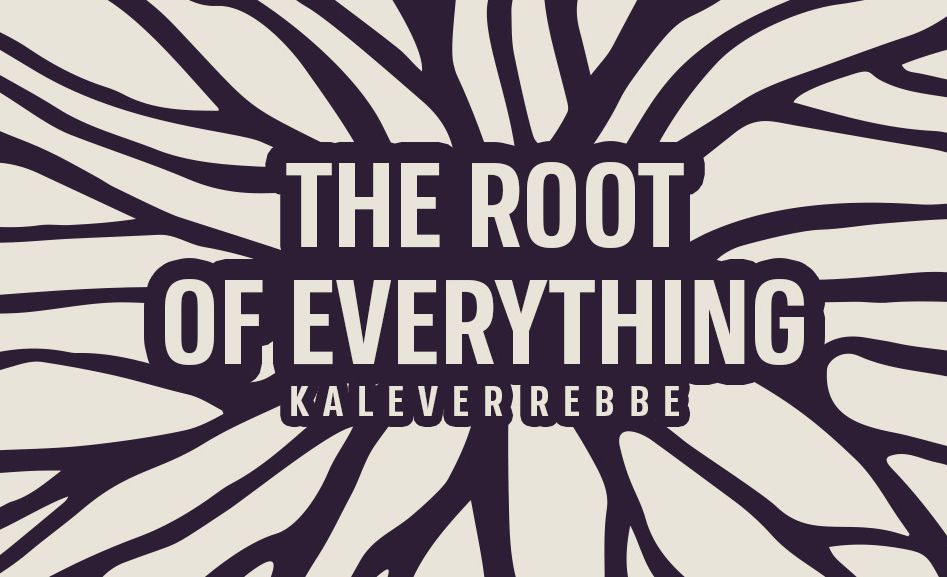
Who Created the World?
Imagine a human being born with a fully developed intellect. We can't imagine his great astonishment upon seeing, suddenly, the heavens, the earth, and all therein…

Excerpts from Rabbi Wasserman’s Classic Essay on Faith, part 1
[In paragraphs 1-4, Rav Elchanan begins by asking a number of questions: What is the connection between our thoughts and our emotions? How can the Torah command us to believe in Hashem, something that is seemingly connected to the heart? How can a child be required to believe in Hashem when even the greatest philosophers have failed to grasp the true faith? How can non-Jews be required to believe in Hashem even if they have not been taught the truth?]
5. If you ponder it, however, you shall find that the belief that the Holy One, blessed by He, created the world is self-understood by any intelligent being — unless a person is a complete imbecile. And there is no need for any [knowledge of] philosophy to grasp this principle.
The author of the Duties of the Heart (Shaar HaYichud 6) thus wrote:
There are people who say that the world came into existence by chance, without a Creator who caused it and formed it. I wonder how any rational being in a normal state of mind can entertain such a notion. If one holding such a opinion would hear a person expressing a similar view in regard to a water-wheel that revolves in order to irrigate a portion of a field or garden — and were to say that he thinks it had been set up without any intention on the part of a mechanic who labored to put it together and adjust it, using all his tools to obtain this useful result — the hearer would wonder, be exceedingly astonished, and think the man who made such a statement extremely foolish. He would promptly charge him with lying, and would reject his assertion.Now, if such a statement is rejected in regard to a small and insignificant wheel, the fashioning of which requires but little contrivance and which serves for the improvement of but a small portion of the earth, how can anyone permit himself to harbor such a thought concerning the immense sphere that encompasses the whole earth with all the creatures on it; which exhibits a wisdom so great that the minds of all living creatures, the intellects of all rational mortals, cannot comprehend it; which is appointed for the benefit of the whole earth and all its inhabitants – how can one say that it came into existence without a wise and mighty designer purposing and conceiving it? Whatever takes place without purpose shows, as is well known, no trace of wisdom or power.Do you not realize that if ink were poured out accidentally on a blank sheet of paper, it would be impossible that proper writing should result, legible lines such as are written with a pen? If a person brought us a fair copy of script that could only have been written with a pen, and said that ink had been spilt on paper and these written characters have come of themselves, we would charge him to his face with falsehood, for we would feel certain that this result could not have happened without an intelligent person’s purposeful action to produce it. Since this appears to us an impossibility in the case of characters whose form is conventional, how can one assert that something far finer in its art, and which manifests in its fashioning a subtlety infinitely beyond our comprehension, could have happened without the purpose, power and wisdom of a wise and mighty designer?How could anyone say that the universe came into existence on its own, seeing that everywhere we look we see signs of such inconceivably profound wisdom? How wondrous is the wisdom and design in the human body, how wondrous the arrangement of its limbs and organs, as all doctors and surgeons attest. How is it possible to say, with regard to such a wondrous machine, that it came into existence on its own without a purposeful designer? If anyone would claim that a watch had just come into existence on its own, he would be considered insane.
We see this in the Midrash (Midrash Temurah in Midrash Aggadot Bereshit):
An atheist came to Rebbi Akiva. “Who created the world?”, he queried.Rebbi Akiva answered, “The Holy One, blessed be He.”The atheist replied, “Show me proof.”R. Akiva said, “Come back to me tomorrow and I shall prove it to you.”When the man returned the following day, R. Akiva began by asking, “What is that you are wearing?”“A piece of clothing, “the atheist replied.And who made it?” R. Akiva continued.“The weaver”, he replied.“Show me proof”, R. Akiva demanded.“But how can I show you proof if it isn’t already obvious to you that it is the work of the weaver?!”With this R. Akiva said, “Have you not heard what your own lips have spoken? Isn’t it obvious to you that the Holy One has created this world? Doesn’t the clothing testify to the weaver; the house and the door to a builder and a carpenter? Just so does the world testify to the One who made it.”
Imagine a human being born with a fully developed intellect. We can’t imagine his great astonishment upon seeing, suddenly, the heavens and their hosts, the earth and all that is upon it. What would this man’s answer be to our question: Did the world that he is seeing now for the first time come into existence on its own, without any conscious intent, or is it the work of a wise Creator? Behold, without a doubt, after contemplating for a moment, he would respond that all this was made with wondrous wisdom and extremely subtle order (fine-tuning).
[We find this concept expressed in any number places in our classical literature.] The Psalmist said, “The heavens declare the glory of G-d”(Psalms 19:2). [According the Duties of the Heart 2:5] this is also the meaning of Job’s words when he declared, “From my flesh, I will see G-d!” (Job 19:26) [The Psalmist saw proof of G-d’s existence in the magnitude of the universe. Job was saying that the very fact that something as wonderful as his body could exist demonstrates that it is the work of a wise Creator.]
To be continued.
***
Reprinted with kind permission of www.ou.org.













Tell us what you think!
Thank you for your comment!
It will be published after approval by the Editor.